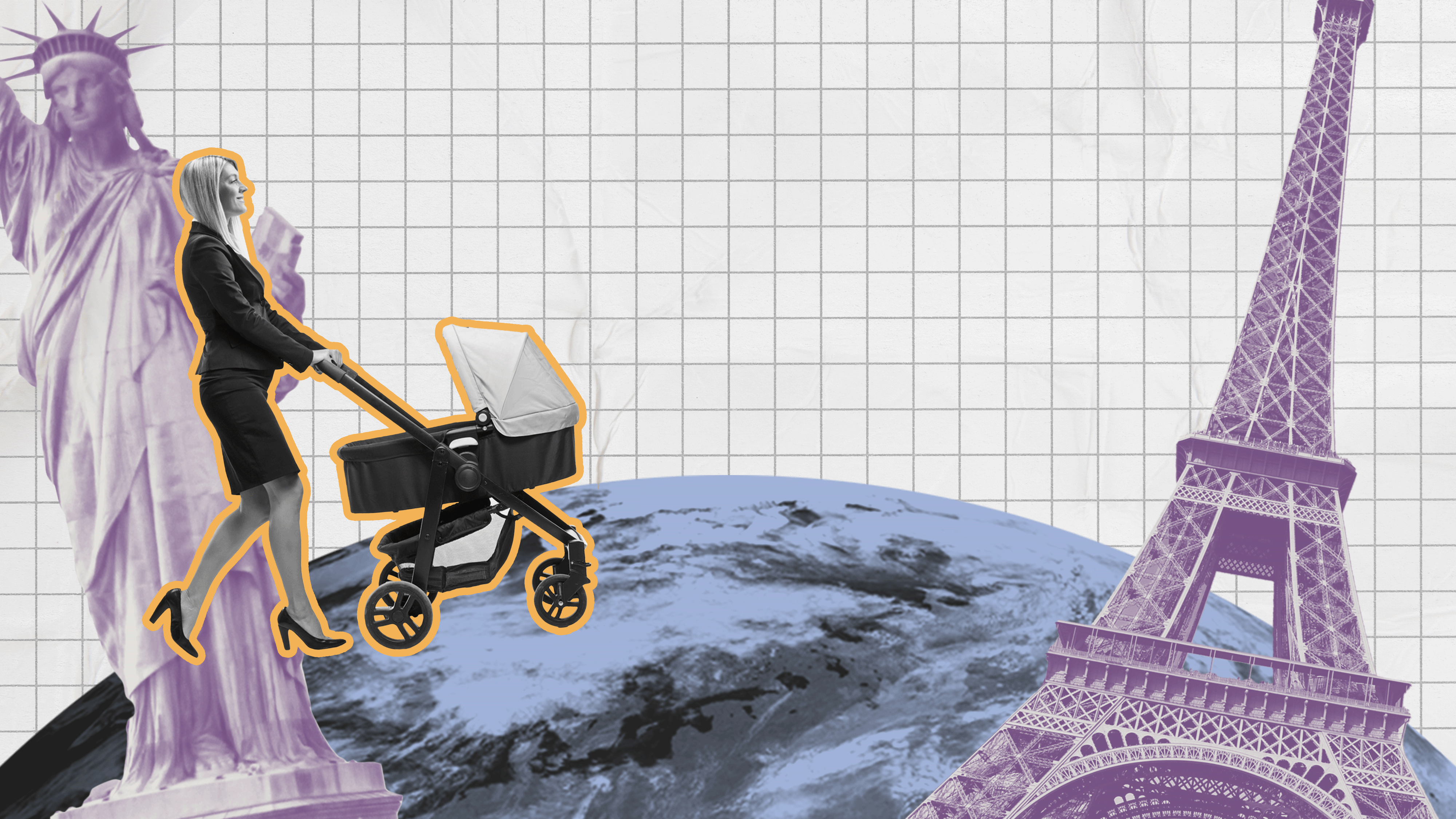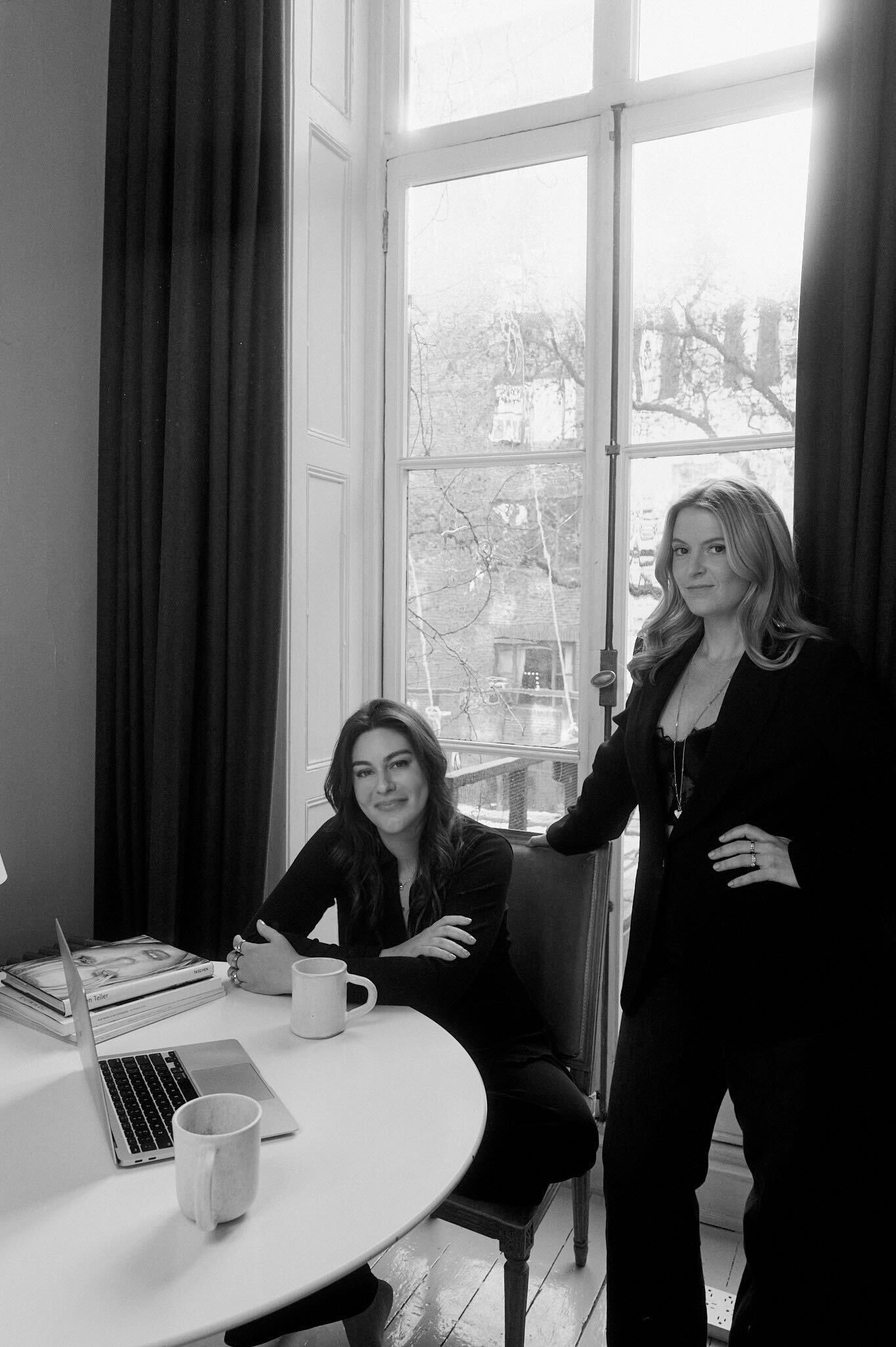The Post-America Moms Club Helping Families Start Over in Europe
Meet the women leaving the U.S. to raise their kids abroad—and the buzzy membership group helping them build a new village from scratch.


One wrong turn in Mallorca, and Suset Laboy was texting 70 other mothers for help.
She was driving her four-year-old twin daughter to school earlier this year when she swerved to avoid a serious crash, but still got rear-ended. She was fine. Her daughter was fine. But her heart was racing, and she had no idea what to do next in a country with rules she didn’t fully understand. Back in Brooklyn, where she’d lived for 14 years before moving abroad, she would’ve known exactly how to handle it. In Spain, she opened WhatsApp.
The thread she turned to wasn’t just any group chat—it was Mother Euro, a growing community and relocation service founded by two American moms to support women who’ve left the U.S. behind in search of something better. Part concierge, part lifeline, Mother Euro connects moms with everything from visa lawyers to pediatricians to the best iced coffee in town. The network currently includes 80 members, and while most are based in Spain, the U.K. is their second-largest hub, with plans to expand across other European markets.
“I didn’t feel comfortable living in the U.S. anymore,” says Alice Kim, an American citizen and Mother Euro member who moved from California back to her birthplace, Seoul, before settling in Barcelona with her husband and two-year-old son. “I was worried about the political climate. My friends raising their kids there would talk about gun violence and how the kids would have to prepare for breathing without their chest moving. Our American dream really got shattered.”
Kim isn’t alone. A growing number of Americans are considering or actively planning to relocate to Europe, driven by concerns over political and social issues, including racial equity and LGBTQ+ rights. Relocation firms have reported increased inquiries, citing political polarization, threats to personal rights, and safety concerns. Applications for British citizenship by Americans have reached record highs. The day after Trump’s second election, Google searches for how to leave the U.S. spiked by over 1,500 percent. Even celebrities have made exit plans: Rosie O’Donnell moved to Ireland in March. Ellen DeGeneres reportedly relocated to the U.K. last fall, as did Courtney Love.
We’re not just a relocation service. We're a village. We want to build each other up.
For mothers in particular, the push factors are hard to ignore. The U.S. has the highest maternal mortality rate among developed countries, and since the Supreme Court overturned Roe v. Wade in 2022, access to life-saving care can depend on your zip code. Meanwhile, child care costs have soared—averaging $11,582 annually, according to Child Care Aware of America—and in many places, the cost of caring for two children now exceeds the cost of housing.
So last fall two American moms, Emily San Jose, 34, and Maggie Gavilán, 32, launched Mother Euro, a membership-based community designed to help women navigate the move abroad and build a life once they’re there. Aspiring members pay $1,500 a year for full relocation support, while Resident members who are already living abroad pay $500 annually to join a network of local moms and access the group’s resources, meetups, and ongoing assistance. It’s part WhatsApp hive mind, part on-the-ground network for everything from kids’ weird rashes to the best local cafés to hit with toddlers in tow.
Get exclusive access to fashion and beauty trends, hot-off-the-press celebrity news, and more.
It’s also where a member can seek advice when, say, she’s rear-ended in a new country and not sure how insurance works in Spain.
“We’re not just a relocation service. We're a village,” says Gavilán. “We want to build each other up. A traditional relocation specialist is going to be, you know, the guy that your dad's company set you up with. He's gonna show you, you know, the best moving company. And we have all those things, but we bring in the emotional factor that we know is so important as women and as moms.”
In addition to real estate agents and top-notch immigration lawyers, Mother Euro connects members with nutritionists, multilingual therapists, and barre studios. When I mention someone who moved to Spain to access IVF, which is significantly cheaper there than in the U.S., Gavilán jumps in: “Do we have a partner for IVF? Not yet. But if you need one tomorrow? We’ll find them.”
Most moms hear about Mother Euro through San Jose, the Madrid-based cofounder better known as @MamaInMadrid. The Oregon native moved to Spain immediately after college, with a plan to stay for a year, make money as an au pair, and travel in her free time. One month later, she met her Spanish husband. They eventually moved back to the Pacific Northwest for five years, but returned to Spain in 2021 to be closer to family.

Mother Euro cofounders Maggie Gavilán (left) and Emily San Jose (right) at work in Madrid.
Online, San Jose is poised, mixing aspirational ease with dry humor in near-perfect Castilian Spanish. Take, for example, the blackout in Spain and Portugal in April. In a post about it on Instagram, San Jose tells the camera she was in the gym when it happened—aspirational!—and says, “I went into flight or fight mode. My husband says that that is a very American reaction, to sort of catastrophize things. Fine with me if that’s going to be my reaction in this situation.” Relatable!
Among 30-something U.S. expats, San Jose is a bit of a celebrity. Proof: When I told a Spanish acquaintance that I was interviewing American moms in Madrid, she squeed, “Do you know MamaInMadrid?!” Further proof: Gavilán, Mother Euro’s cofounder, DMed San Jose last year when she was considering moving to Madrid, too. She has dual citizenship and wanted to be closer to her family. “I saw this really pretty blonde girl living in Spain, speaking fluent Spanish, and I was like, maybe she’ll be my friend,” she says. They met for drinks the next time Gavilán visited, shut down the bar, and took a few blurry two a.m. selfies.
Gavilán got pregnant soon after, and started seriously planning her family’s relocation. “Raising children and even just being a pregnant woman in the States, transparently, felt really scary,” she says. “So I wanted to give my kids and myself, selfishly—and I can be selfish—a better life.”
Of course, moving to Europe isn’t always as romantic as it sounds. There are visas to secure, cultural nuances to decode, and costs to consider. (Gavilán estimates relocation costs around $15,000, though it varies widely.) As she navigated her own move, friends and strangers began reaching out for advice.
“I'm telling you, I was on the phone until two a.m. sometimes trying to help moms with finding the right attorney or with the right education consultant because they didn't understand the nuances between the US and EU system and how that would work, which, I didn't either when I was figuring it out,” she says.
That’s when she realized there was a real need for a service that could guide women through it—not just logistically, but emotionally. “People want to do this,” she says. “But they want to feel as though they're in community with somebody doing it, either at the same time, or who has already done it—and also somebody who they want to hang out with.”
Raising children and even just being a pregnant woman in the States, transparently, felt really scary.
Though most of the Mother Euro action happens online, the group hosted its first IRL event in April: a dinner party in Madrid to celebrate the official launch. Thirty women flew in from Costa Brava, Mallorca, and London.“There were so many badass women there,” says Kim, who traveled from Barcelona to attend. During an icebreaker, members were first instructed to “step in” if they were born in the U.S. For the second prompt, they were asked to take a step in if they were a business owner. “I think three-fourths of the room stepped in,” she says. “After that I was like, I’m going to have to step up my game.”
She sat next to Heather, an American mom who’s lived in Europe for 17 years, and peppered her with questions about schooling. Heather insisted on local schools over international ones. “Now I’m leaning local too,” Kim says. “Because more and more I feel like I don't want my son to go to a U.S. college after living all his adolescence in Europe. It would feel like a back step.”
Mother Euro is expensive, on top of all the other costs that go into moving your life somewhere else, and it’s not not luxury service. But it’s one that 200-plus women are willing to pay; that’s how many applicants Gavilán says they’ve been receiving per month. One aspiring member, who is planning a move to Madrid after her second child is born, says her membership has already been worth it. She explained that it was especially helpful for navigating Spain’s Beckham Law, which allows foreign workers to pay significantly less in income tax than Spanish citizens, and far less than they would in the U.S.
Still, upending your life to relocate to Europe isn’t a panacea, nor is it easy. Moving abroad is a privilege and a struggle—both things can be true. Even the founders are still figuring things out as they go along: Gavilán is currently weighing public versus private hospitals in Madrid for her C-section; Laboy misses the diversity of Brooklyn.
But for Laboy, the hardest part has been leaving her sister and parents behind. “It feels sad, and at the same time, it feels like the right choice for us at this very moment,” she says, tears forming. “It’s very important for me to recognize that this move is a privilege that not everybody has.”
“Still,” she adds, “living here feels like an exhale.”
This community really helps me mentally.
Mother Euro affirms something mothers around the world have always known: When women are part of the conversation, everyone wins. “[Our launch dinner party] reminded us that mothers will travel near and far to be seen, supported, and celebrated by their communities,” Gavilán recapped over email after the event. “Listening to everyone share their stories on why they moved, what they’re seeking, and how they’re building their lives abroad—it was a powerful affirmation of why we created this space.”
It also proves that no matter where you are, whether you’re figuring out tax residency or just daycare culture, motherhood still takes a village. Like when Kim’s son came home from his Spanish daycare with a goodie bag. “I was like, ‘Wait, was there a birthday party I didn’t know about? Am I missing something? Do I need to send a gift?’”
So she hit up the Mother Euro chat, where San Jose explained that in Spain, the birthday kid gifts their friends—instead of the other way around. The same goes for adults: if you host the dinner, you pick up the check.
“This community really helps me mentally,” Kim says. She’s since made a real-life friend in Barcelona through Mother Euro, and the two are going to an Imagine Dragons concert this summer. “Making friends when you're older is harder, but within Mother Euro, we all have so many commonalities that it just helps us click. I'm confident that whoever is in it shares the same values.”
And after arriving in Spain in February, she hasn’t looked back.
Julie Vadnal is a freelance writer and founder of the weekly newsletter Jules. (You should definitely subscribe.) Her work has appeared in New York, Cosmopolitan, Domino, Real Simple, and Architectural Digest. She lives in Brooklyn.
